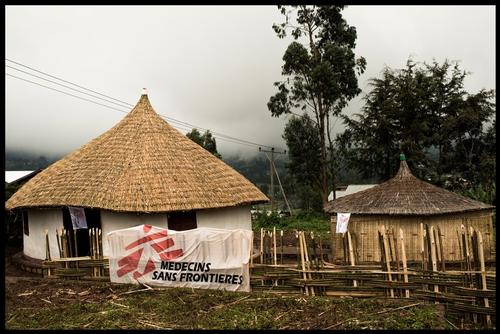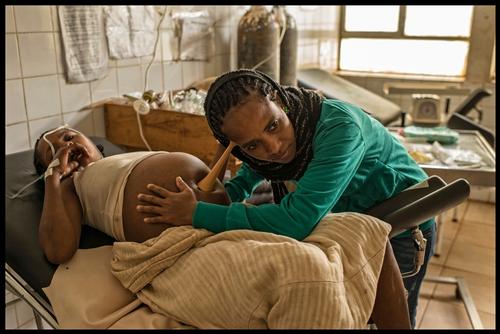Oval-shaped huts scattered all around a small area adorned with lush indigenous trees and expansive green meadows that give a feeling of homeliness is typical of villages in the Sidama zone, where Médecins Sans Frontières (MSF) runs a maternal health project in the Chire and Mejo divisions (known as woredas).

Expectant mother Widinesh Legabo’s village is 20 kilometres from the administrative town of Mejo. Widinesh, 32, has already gone through five challenging pregnancies, with long hours of labour, extensive bleeding and extreme shock during child birth. From the age of 16, when she had her first child, each delivery has always been a tormenting time for Widinesh. “Once I even went through a terrible six-day labour. I was suffering day and night. The cheerful voices of children playing out in the open and the sound of mowing cows outside that I always liked became unbearable. I wanted to lie still and forget that I was alive. The pain was unbearable,” she says. Widinesh has given birth to three sets of twins and two babies in five pregnancies. She had all the deliveries at home with traditional birth attendants.
Widinesh’s story is echoed in the tales of women at the Mothers’ Waiting Houses in Chire and Mejo. “The maternity waiting houses have two major purposes; to bring expectant mothers living in distant villages closer to health facilities before delivery, and to closely monitor women with a history of complications in the later stages of pregnancy in order to respond quickly to any complications before or during delivery,” explains Girma Fikru, an MSF nurse in Sidama. Most of the women are referred to the waiting houses by MSF outreach teams that go to remote villages in the region to conduct medical consultations and provide treatment, including vaccinations, as well as offer health education to women of childbearing age. In collaboration with the Ministry of Health, MSF has set up a 24-hour ambulance service to help curb the arduous travel to the nearest health centres during emergencies.
Access to antenatal care and postnatal care services is crucial to preventing infant and maternal mortality. Since the inception of the project, a total of 12,027 antenatal and postnatal consultations have been conducted. 1,248 deliveries have been successfully conducted at the health centre in Mejo and 771 in Chire. Overall, the total number of women in the two locations seeking institutional delivery services has improved.



